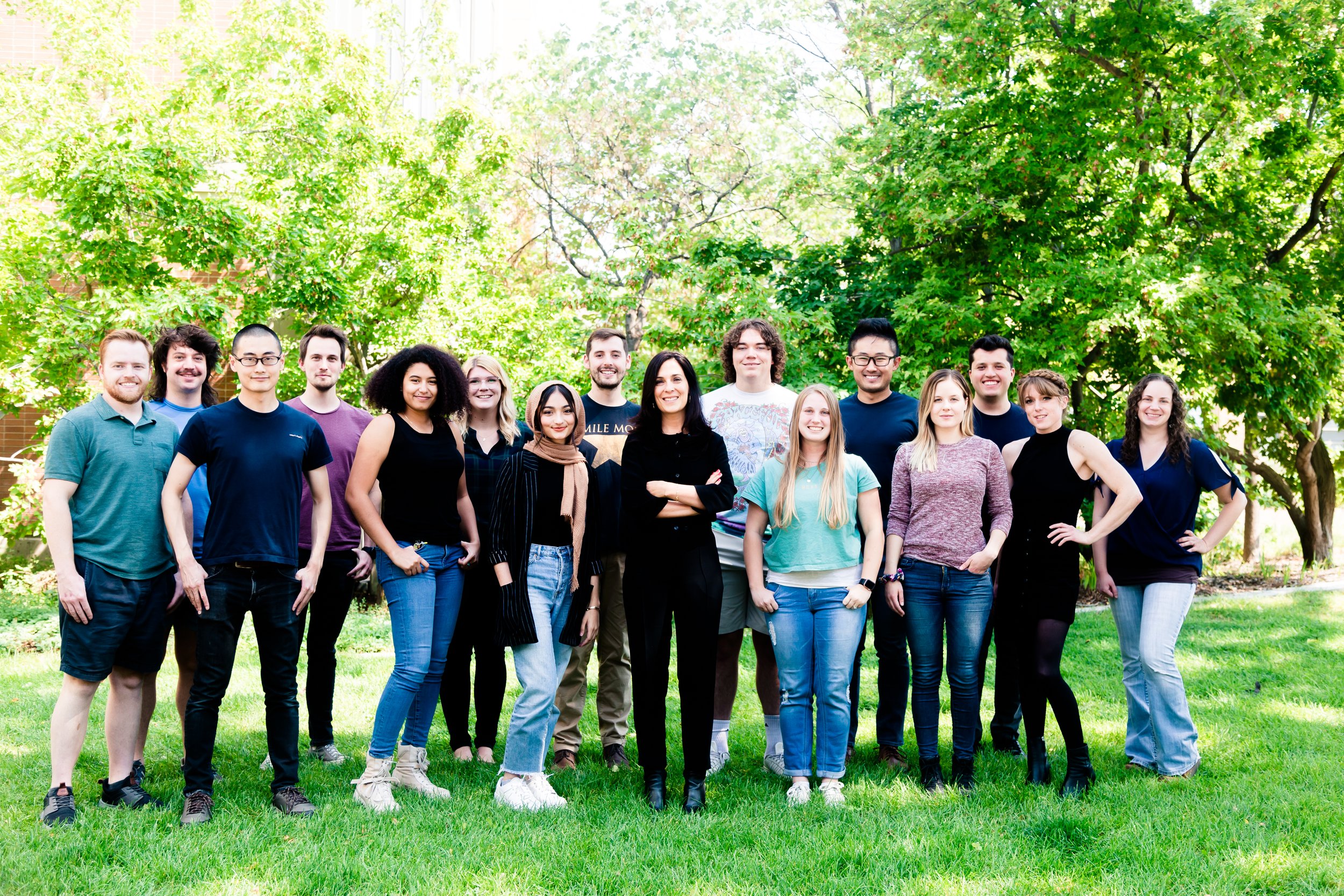
Sophie Caron, associate professor in the School of Biological Sciences, is the recipient of the College of Science Excellence in Teaching and Mentoring Award for 2023.

Sophie Caron. Banner photo above: the Caron Lab.
While Caron is highly regarded for her stunning work in neuroscience research, she is also cherished within the College of Science community for her exceptional talents as an educator. Her kind and compassionate approach to teaching and mentoring has created an environment where students and undergraduate researchers are uplifted in their work and can move forward with the skills to find success in their education, careers, and beyond.
While developing her teaching style, Caron thought outside the box of the standard curriculum and elected to incorporate essential career skills, including how to read and analyze research papers, which she believes is a crucial skill for future scientists. “I think it is really important for students to be able to read research papers because neuroscience is going to change dramatically in the next few years,” she says. In her classes, students collectively explore and present research papers, delving deep into the material and gaining a profound understanding of the subject matter. “I’m always amazed at how deep they go into the paper and how well they understand, and to me that’s really rewarding because I see that this is when it clicks for them what is possible today.”
Along with developing her student’s understanding of present-day neuroscience, Caron also actively encourages her students to reach out to researchers for valuable hands-on experience, emphasizing the importance of practical application in their academic journey. She has worked to ensure that her lab is a welcoming place for undergraduates to gain their first experience doing research. Caron currently hosts ten undergraduate researchers in her lab and has fully immersed herself in the role of mentoring and supporting these students. “You really become invested in their success,” describes Caron. “I see the success of my mentees as just as important, if not more important, than my own. It’s something that I really take to heart, and I would say is the most important part of that job.” It is this level of dedication and support that creates such a positive experience for her students and will provide the foundation for their future careers.
In the lab, Caron and her student researchers are working to expand our understanding of memory and perception in the brain by studying the brain center of Drosophila, often called fruit flies. “Our main interest is, first and foremost, the brain, and how brains are built to generate this vast array of behaviors,” she explains. “in Drosophila, you have thousands of different species. It’s really fun to start thinking about brain evolution, and it’s really hard to find another species that has so many cousins, where you can compare brains that have adapted to a completely different environment.” A fruit fly’s minute brain may seem an unlikely subject for exploring neuroscience, so why study them? Caron explains that it’s all about simplicity, and understanding the most basic form of a system as complex as the brain: “I really like to look at the simplest system and the simplest brain, so to speak, to really start to understand, for example, what’s the minimal amount of neurons you need to form a memory? And can we start understanding at the level of functional activity in one neuron?” Caron’s curiosity shines through questions like this, as she keeps pushing to expand the field of neuroscience and our understanding of memory, learning, and perception.
Any student fortunate enough to pass through Caron’s classroom or lab is sure to be instilled with her contagious passion for exploration and learning. As she continues to inspire through her teaching, mentoring, and groundbreaking research, Caron is committed not just to shaping better scientists, but better collaborators and citizens. “Working in a space where kindness prevails and there is a desire for collaboration is really what makes us stronger, not just as a team but also as a society. I’m really hoping that this is what [students] take away from the lab.”
Sophie Caron truly embodies the spirit of a passionate and dedicated educator. Her impact on both her students and the field of neuroscience is a testament to the power of a compassionate and creative approach to teaching and mentoring. When asked about the most important thing she teaches to her students, she answered “The joy of discovery and science. To nurture that and to appreciate that. And to know how privileged of a situation it is to be able to work on a problem that you’re obsessed with, and that is your life’s mission. I know it’s cliche, but to me, it doesn’t even feel like a job because it is such a passion. That’s something I hope they can take away.” Safe to say, the future of science and research is looking bright with educators like Caron leading the way.
by Julia St. Andre
Sophie Caron has also been awarded a Presidential Scholar Award in 2023. You can read the story about her and the award here.
